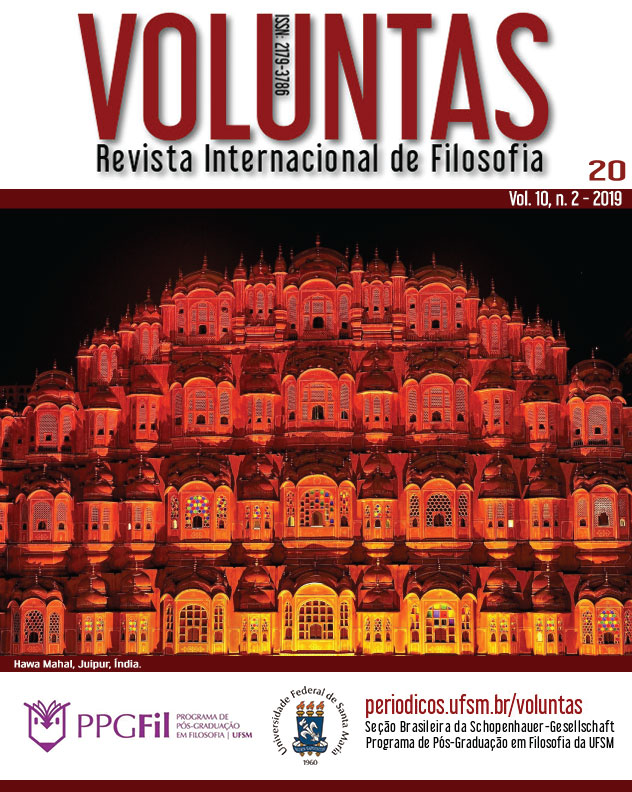On the universal religion in Vivekananda
DOI:
https://doi.org/10.5902/2179378639710Keywords:
Vivekananda, Universal religion, Indian philosophyAbstract
This article analyzes Vivekananda’s concept of universal religion. In the World’s Parliament of Religions, the Indian thinker presents Hinduism and a theoretical source to support religious pluralism. Throughout his keynote speeches in the United States and Europe, we will demonstrate how Vivekananda conceives universal religion from the perspective of the Vedānta philosophy.Downloads
References
BURKE, Marie Louise. Swami Vivekananda in the West: New Discoveries. vol. 1, Advaita
Ashram, 2000.
HALBFASS, Wilhelm. India and Europe. Motilal Banarsidass Publishers PVT. LTD. Delhi, 1990.
HALBFASS, Wilhelm. Philology and Confrontation: Paul Hacker on traditional and Modern Vedanta. Albany, NY: State University of New York Press, 1995.
NAICKER, Suren, Analysis of water-related metaphors within the theme of religious harmony in Swami Vivekananda’s Complete Works. In. HTS Teologiese Studies/Theological Studies, 2016.
SEN, Amiya P. Swami Vivekananda. Oxford University Press, 2000
STROUD, Scott R. The Pluralistic Style and the Demands of Intercultural
Rhetoric: Swami Vivekananda at the World’s Parliament of Religions, In. Advances in the History of Rhetoric, Vol 21, n 3, 2018.
ROLLAND, Romain. The life of Vivekananda and the universal Gospel, 2nd edn, Hollywood: Vedanta Press & Bookshop, 1953.
VIVEKANANDA, The Complete Works of Swami Vivekananda. Volumes 1-9. Estados Unidos: Zhingoora Books, 2012.
Published
How to Cite
Issue
Section
License
The submission of original manuscripts to this journal implies the transference, by the authors, of the copyrights for printed and digital publication. The copyrights of a published manuscript belong ultimately to the author, and only the copyright for its first publication is reserved to the journal. Authors may only use the same results in other publications explicitly indicating this journal as the medium of the original publication.
Licence
Attribution-NonCommercial-ShareAlike 4.0 International (CC BY-NC-SA 4.0) - This license lets others remix, tweak, and build upon your work non-commercially, as long as they credit you and license their new creations under the identical terms.






